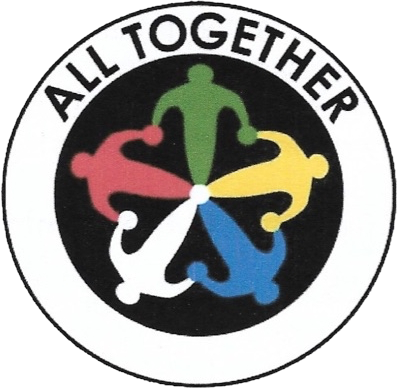What are White Americans willing to give up to redeem the grave sin of slavery?
That was the question headlining the Evening Virtual Discussions hosted by ATW board members Shari Wiltshire and Eileen O’Brien on July 31 & Aug. 5 via Zoom.
Two New York Times articles grounded the discussions: Nikole Hannah-Jones’ “What is Owed?” & Isabel Wilkerson’s “America’s Racial Caste System” Over two days, nearly 30 participants unanimously agreed that something is owed to Black Americans whose ancestors were slaves. But who or what must be sacrificed to secure what is owed is still a question plaguing the movement toward reconciliation.
Hannah-Jones eloquently argue that all the commonly suggested routes to financial success – education, home ownership, two-parent families, etc. – are still not enough for Black Americans to close the wealth gap because Blacks remain to be the only ethnic group who started out with absolutely nothing in America yet generated extravagant riches for European colonial powers.
Wilkerson eloquently argues that a 400-year-old social order is providing the subconscious code of instructions for maintaining the architecture of human hierarchy in America today. The U.S. caste network upholds White Americans as the dominant caste, and the hierarchy has been maintained through the policing of roles, behaviors and boundaries based on race.
The virtual group, like much of America, was stumped by the logistical execution of reparations to Black Americans.
A virtual participant said, “cutting a check will not solve the problem;” and another said, “reparations are supposed to be about making amends for the harm and repairing that damage.”
Virtual participant and board member Jodi Fisler offered to reframe the perspective on reparations from something White Americans may lose to something all Americans can gain. This reframe helped our nearly all-White group of participants refocus on the national affect reparations can have.
In response to Wilkerson’s article, a participant said, “I can relax and rely on my caste and the thought of falling out of that is frightening.” Another participant said, “racism is the creation of White folk. Pogo (an American comic-strip) said it: we met the enemy and we are it. White folk are the ones to advocate relentlessly for racial equity whenever, wherever we are.”
Facilitators Shari & Eileen charged their group of participants to consider how they help close the gap to racial inequality in their communities. The facilitators noted that often the title leader is tasked out to politicians, making them responsible for change, when in fact we lead in our distinct communities everyday.
One participant reported that she leads in closing the inequality gap by counseling Black and Brown students so that they have a voice in their schools and community. An historian said he spends time discovering and uncovering the truth behind the enslavers and the slaves to create space for dialogue in his circles. Many participants shared that they lead through their time and energy on the ground with grassroots activism and through signing political petitions, studying candidates and voting.
ATW intends to host additional virtual discussions as they honor social distancing requirements. Stay tuned-in to the Events Page for more, and in the meanwhile, share your comments on the discussion below.

